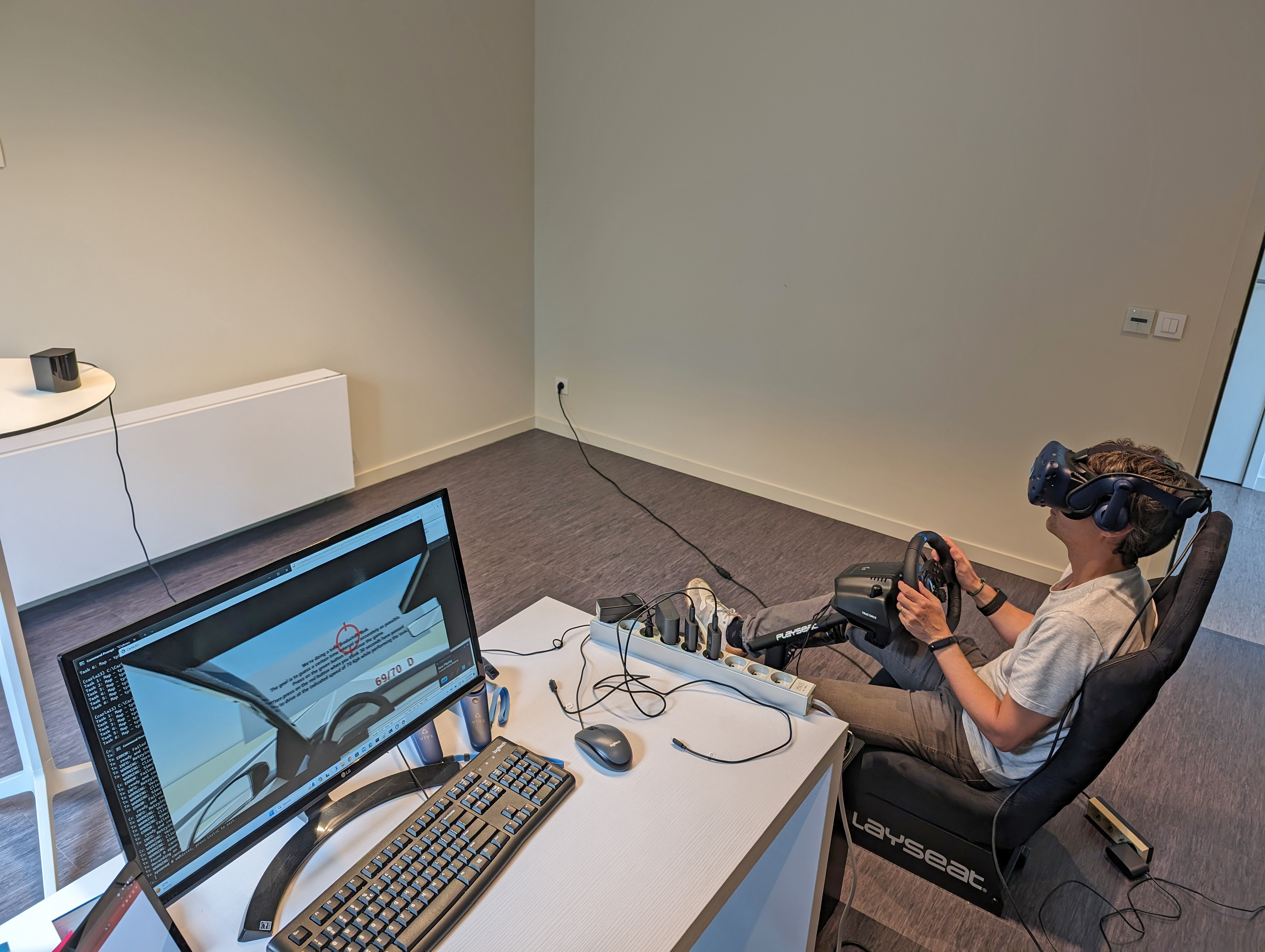22/07/2024 Studying human subjective time experience by introducing stressors and distractors in a photorealistic VR driving simulator
Participants engaged in a series of time production tasks under various conditions, including daylight, wetness, darkness, fog, stop-and-go traffic, and tailgating. These tasks were designed to simulate real-world driving scenarios while allowing for precise measurement of cognitive and physiological responses.
Results revealed that stress and distraction generally led to an overestimation of time intervals, indicating a compression of subjective time perception. Speed maintenance control emerged as a reliable indicator of mental workload, with novice drivers exhibiting less control under stress. Distraction levels were notably higher in the tailgating scenario, and alertness increased when this condition was presented early in the experiment, suggesting an interplay between the timing of stressors/distractors and participants’ cognitive load.
This research contributes to the broader understanding of how stressors and distractors affect human cognition and behavior. It underscores the potential of VR as a tool for studying and manipulating time perception, with applications in
various fields such as psychology, education, and entertainment.
